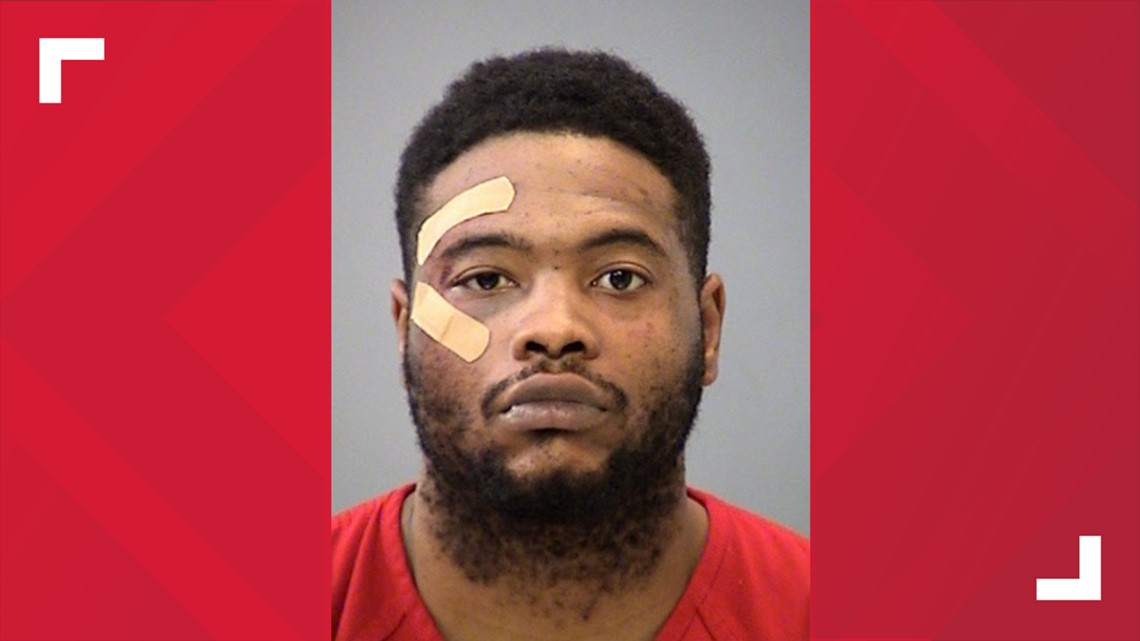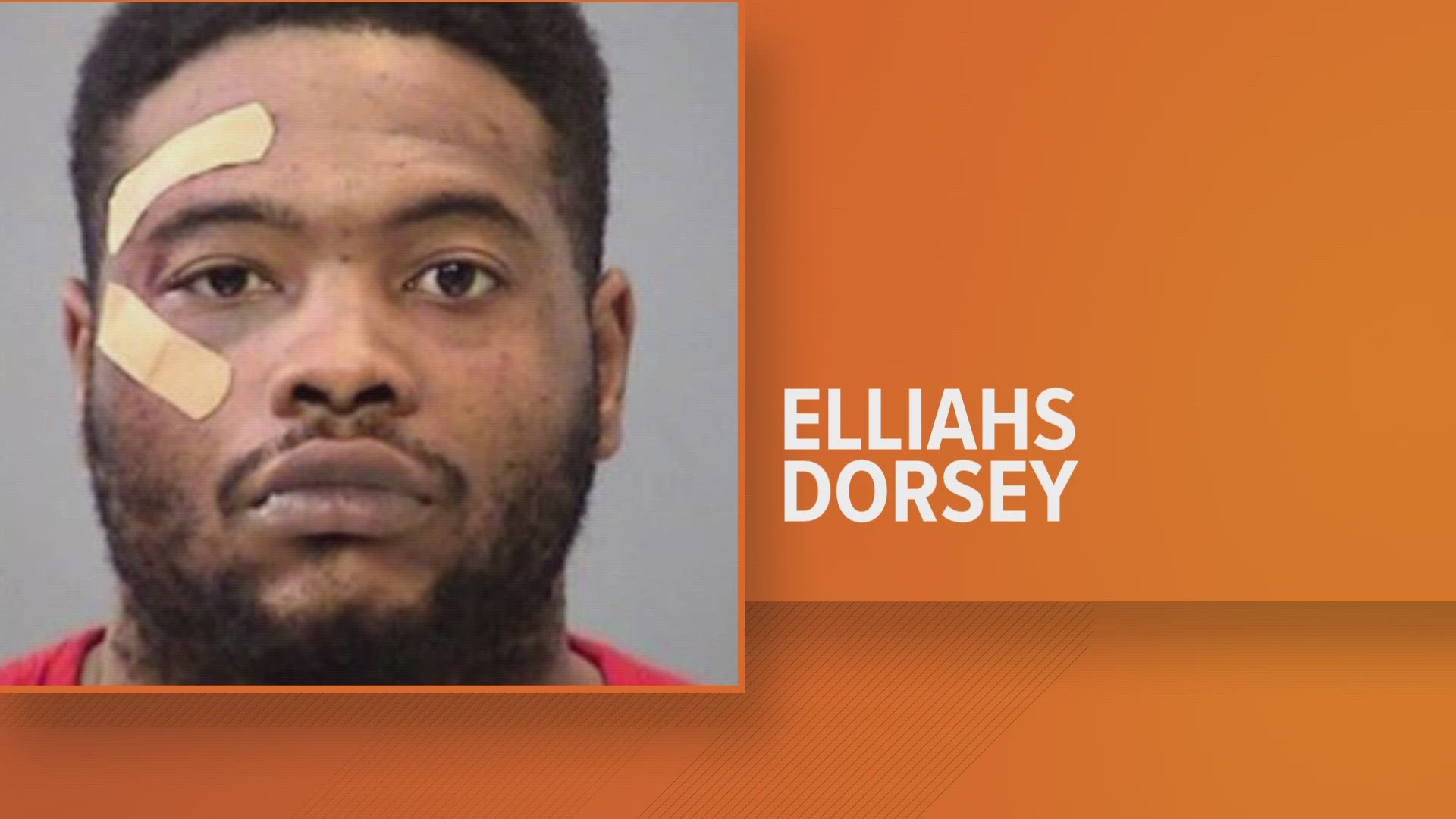INDIANAPOLIS — After a contentious battle between the Marion County Prosecutor's Office and judge in the trial of Elliahs Dorsey – the man accused of killing IMPD Ofc. Breann Leath – the state will be able to seek the death penalty.
The decision handed down May 12 ends months of dispute that at one point had the prosecutor's office asking the judge in the case, Mark Stoner, to recuse himself and Stoner refusing.
Dorsey is accused of murdering Leath on April 9, 2020, while she and three other officers were responding to a domestic violence call involving Dorsey.
Marion County Prosecutor Ryan Mears is seeking the death penalty, saying the killing happened while Leath "was acting in the course of duty as a law enforcement officer."
Dorsey's public defenders argued that a defendant can only be sentenced to death for murdering a law enforcement officer if the defendant knew he was shooting at law enforcement.


According to the public defenders, the officers did not announce themselves as the police and that Dorsey said, "that ain't the police" before firing shots through the door.
On March 17, the judge overseeing the case voiced concerns on allowing the death penalty – given the evidence both sides had presented to that point. The prosecution and defense were given until March 30 to present more evidence before a decision was made.
Mears' office claimed Stoner overstepped when asking for them to prove – before trial – that the case warranted the death penalty. The judge commented that the issue could be a violation of ethics.
Mears' office went on to point to comments by Judge Stoner that there is concern over whether the prosecutor is using the death penalty as a tool for possible plea negotiations. The judge made the comment at one point that the record of the prosecutor's actions on the death penalty could be sent to the "board of commissioners in terms of judicial qualifications and professional responsibility."
The prosecutor's office argued that Judge Stoner's remarks "demonstrate bias and prejudice against the State and prevents the State from continuing to seek a fair and just resolution to this case." It is for those reasons that the prosecutor's office asked for the judge to recuse himself.
In a response from the judge on April 6, Stoner said a disagreement over whether the court has power to hold a hearing to address a motion by the defense is not grounds for recusal. Stoner goes on to say the court cannot ignore the motion filed by the defense.
Stoner said, "The State has a duty to comply with the Rules of Professional Responsibility at all times." He goes on to say the prosecution can also appeal the court's ruling on the death penalty matter and that, since the court has not yet reviewed the exhibits and case law submitted in the defense and prosecution's arguments, a recusal in anticipation of a ruling is inappropriate.
Now that the judge has considered the cases presented by both sides, he ruled the prosecution can continue to seek the death penalty.
Dorsey's trial is currently set for September.
Remembering Officer Leath
Officer Breann Leath was a mother and just 24 years old when she was killed. She had been with IMPD for more than two years. Leath had wanted to be a police officer like her father since she was young.
In her honor, IMPD launched the LEATH Initiative in conjunction with the Bureau of Alcohol, Tobacco, Firearms and Explosives and the U.S. Attorney's Office for the Southern District of Indiana. LEATH stands for Law Enforcement Action to Halt domestic violence against men, women and children.
The LEATH Initiative will target domestic violence offenders who commit crimes with illegally owned guns. Those who have a misdemeanor domestic violence conviction, are the subject of a final protective order, or have a state or federal felony conviction will be at the center of the investigations.
Federal law prohibits previous domestic violence offenders from legally possessing firearms or ammunition. Violators could face up to 10 years in federal prison.
The LEATH Initiative will also work to support victims of domestic violence. Officers will connect domestic survivors and witnesses with social services in their communities to help.

